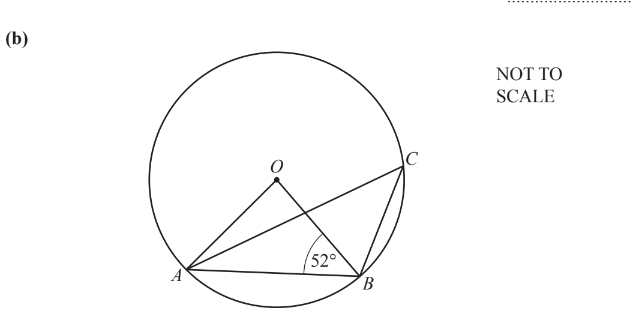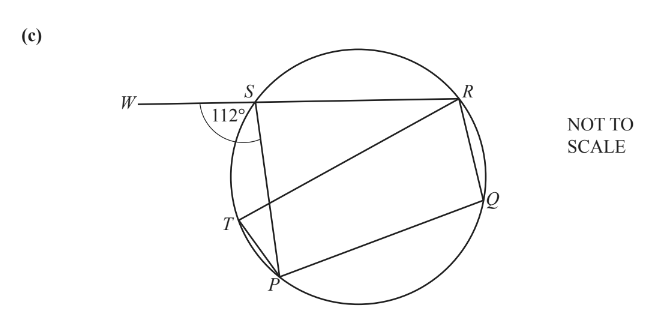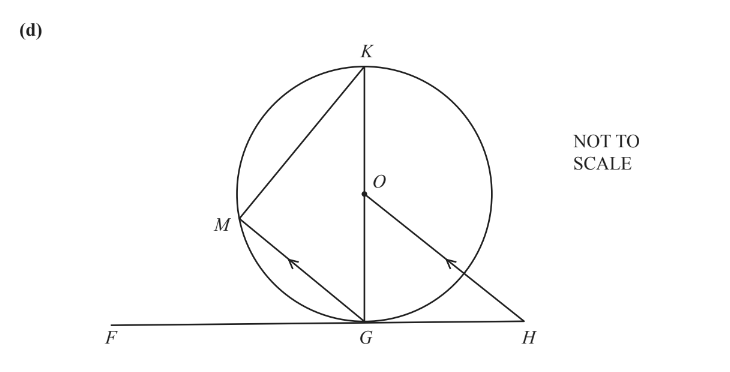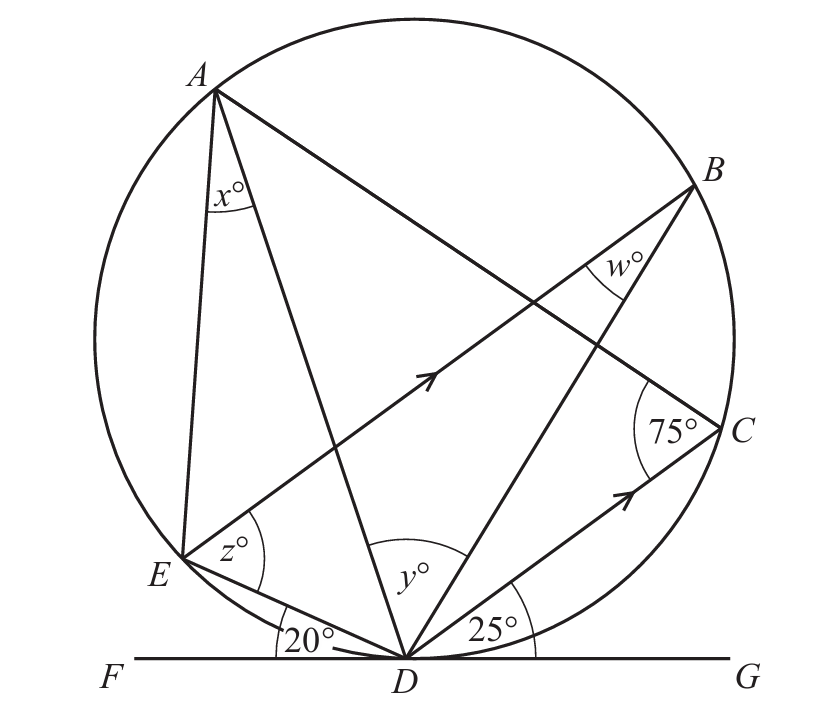(a) The interior angle of a regular polygon is 156°.
Calculate the number of sides of this polygon.

A, B and C lie on a circle, centre O.
Angle OBA = 52°.
Calculate angle ACB.

P, Q, R, S and T lie on a circle.
WSR is a straight line and angle WSP = 112°.
Calculate angle PTR.

G, K and M lie on a circle, centre O.
FGH is a tangent to the circle at G and MG is parallel to OH.
Show that triangle GKM is mathematically similar to triangle OHG.
Give a geometrical reason for each statement you make.
▶️ Answer/Explanation
(a) 15
Exterior angle = 180° – 156° = 24°. Number of sides = 360° ÷ 24° = 15.
(b) 38°
Triangle OAB is isosceles (OA=OB). Angle AOB = 180° – 2×52° = 76°. Angle ACB is half of angle AOB = 38°.
(c) 68°
Opposite angles in cyclic quadrilateral add to 180°, so angle PQR = 68°. Angle PTR = angle PQR = 68° (angles in same segment).
(d)
1. Angle GKM = Angle OHG (alternate angles, MG∥OH)
2. Angle KGM = Angle HOG (alternate angles, MG∥OH)
Triangles are similar (AA criterion).
(a) Find the size of one interior angle of a regular 10-sided polygon.
(b) 
The points A, B, C, D and E lie on a circle.
FG is a tangent to the circle at D.
EB is parallel to DC.
Find the value of each of w, x, y and z.
▶️ Answer/Explanation
(a) 144°
For a regular 10-sided polygon, each interior angle equals (10-2)×180° ÷ 10 = 144°.
This comes from the formula (n-2)×180° for the sum of interior angles.
(b)
w = 20° (angle between tangent and chord equals angle in alternate segment)
x = 20° (alternate angles are equal as EB is parallel to DC)
y = 60° (angle at circumference is half angle at center, 180°-2×20°-60°=80°)
z = 45° (angles in triangle ADE: 180°-20°-25°-90°=45°)
The solution uses circle theorems including the alternate segment theorem and properties of parallel lines.
